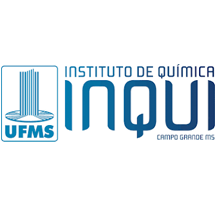Federal University of Mato Grosso do Sul

Faculty members at the Institute of Chemistry (INQUI) – Federal University of Mato Grosso do Sul (UFMS) are fully committed to the principles of green chemistry and development of sustainable processes. At INQUI, the graduation curriculum contains several topics of sustainable chemistry both in theoretical as well as in practical courses. While at the post-graduation level, there are specific disciplines on green and sustainable chemistry. Students of all levels (undergraduate, graduate, post-graduate) have opportunities to get involved in diverse research projects involving green chemistry.
Chemistry B.S., Chemistry M.S., Chemistry, Ph.D., Chemical engineering, Technological Chemistry
General Chemistry, Organic Chemistry, Physical Chemistry, Green Chemistry stand-alone course, Faculty Research, Student Research, Student Chapter/Club Activities and/or Outreach
No.
In short term, creating a stand-alone green chemistry at the graduation level. The Long term goal is to start a green chemistry centre with the degree program.
Scientific Journals: Green Chemistry; Trends in Green Chemistry; Energy and Environmental Science; Journal of Advances in Modeling Earth Systems; ChemSusChem; Environmental Science and Technology; Journal of Hazardous Materials; Chemical Engineering Journal; Environmental Toxicology and Chemistry; ACS Sustainable Chemistry and Engineering; Environmental Chemistry; Biodegradation; Environmental Science and Pollution Research; Journal of Atmospheric Chemistry; Environmental Geochemistry and Health; Greenhouse Gases: Science and Technology; Environmental Chemistry Letters.
Books: P. Anastas, J. C. Warner, Green Chemistry: Theory and Practice, 2020, Oxford University Press; V. K. Ahluwalia, Green Chemistry: Environmentally Benign Reactions, 3rd ed. 2021 Edition, Springer; M. Lancaster, Green Chemistry: An Introductory Text, 3. Edition 2020, Royal Society of Chemistry.
Electronic Media having green chemistry: contents from Youtube, Podcast, Webinar.
